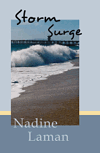Some people refer to their manuscript as their
"baby." That tells me that no matter what needs fixed before it can be
published, every word is sacred and regardless of how wrong the manuscript will
not be changed for God or country, much less for a publisher.
When that is the case, and if you know you don't
want anyone to mess with your masterpiece, self-publishing of one type or
another is the solution. There are three basic groups of self-publishing. One is
to upload your ms to one of several free sites (free to upload, but consider the
cost of books), send the file to a for-hire outfit (consider the cost of the
service and the books), and the real-deal self-publishing model where the writer
finds and hires each professional in the publishing process; editor, proof
reader, book formatter (layout), cover artist, and off-set printer. Be prepared
for several thousand books to be in the first run.
For those seeking publishing from a large
publisher, the process is to query literary agents. Most small independent
publishers, like Cactus Rain Publishing, will accept a query directly from the
writer. Purists reserve the word author for a writer of a published work.
In general, the basics of the query process are
universal. Some agencies and lit agents add specifics to the query fundamentals,
which are the genre, the page count, a brief synopsis of the ms, and a short bio
of the writer as it pertains to the specific ms being queried.
In addition to the query letter, which is a
business letter, is a one page (single spaced lines, written in third person)
synopsis that tells the beginning, middle, and end of the story. The final item
is the sample chapters. These are the first chapters not chapters in random
order. For CRP, it is the first three chapters.
In the past, CRP has responded to each query. Most
often a reason for rejection has been given, such as we don't publish
non-fiction. At times I've coaxed the basic information out of the writer by
asking, "What is the genre of this work?" or "What is the word count?" Those
days are over.
That practice is coming to an end. A query should
not be mysterious about what major event changed the protagonist's life and
neither should the query. There is no way to know if I want to publish a book
that I know nothing about. I'm not sure the reason, but recently someone sent a
query without the required sample chapters. How am I to know if they can hook
the reader and can deliver the basics of writing?
The new policy is that there will not be a
response if the query does not follow the posted guidelines. My belief is if a
writer thinks their manuscript has merit, they will put forth the effort to
correctly query it.
http://www.cactusrainpublishing.com/submissions.html
Sunday, August 26, 2012
Subscribe to:
Comments (Atom)

 When Paul Fenton stops for breakfast in a small town, he gets more than he bargained for in the process.
When Paul Fenton stops for breakfast in a small town, he gets more than he bargained for in the process.
 When two-hundred-year-old human remains are discovered on one of Neptune's moons, Earth's history falls into question.
When two-hundred-year-old human remains are discovered on one of Neptune's moons, Earth's history falls into question.
 Emily's husband persuades her to try thalidomide to ease her symptoms as she is unaware of the devastating effects.
Emily's husband persuades her to try thalidomide to ease her symptoms as she is unaware of the devastating effects.
 Who is the women's shelter bomber? Melissa Ryan suspects that her husband knows.
Who is the women's shelter bomber? Melissa Ryan suspects that her husband knows.
 Further developments with the Wilder family.
Further developments with the Wilder family.
 A hidden past shakes the O'Donovan family to its core
A hidden past shakes the O'Donovan family to its core
 A swirl of emotion and choice, set in Cape Town, South Africa
A swirl of emotion and choice, set in Cape Town, South Africa
 Love is a constant, but it comes at a price.
Love is a constant, but it comes at a price.
 When the road ahead is unclear, sometimes you have to rely on trust.
When the road ahead is unclear, sometimes you have to rely on trust.
 The struggle between good and evil is ages old. It gets all the more complicated when the good guys aren't all good and the bad guys have redeeming qualities.
The struggle between good and evil is ages old. It gets all the more complicated when the good guys aren't all good and the bad guys have redeeming qualities.
 Story of a land mothering two races of people – the light-skinned and the dark-skinned.
Story of a land mothering two races of people – the light-skinned and the dark-skinned.
 A gifted Ukrainian ballerina comes into possession of a mysteriously coded address book.
A gifted Ukrainian ballerina comes into possession of a mysteriously coded address book.
 Six passengers' lives change for better or worse after they arrive in Honiton.
Six passengers' lives change for better or worse after they arrive in Honiton.
 Resilience and love in a harsh and unforgiving age
Resilience and love in a harsh and unforgiving age
 Kathryn's Beach
Kathryn's Beach High Tide
High Tide Storm Surge
Storm Surge